Seed and Data Bank in Zakynthos
Diploma project at the Department of Architecture, University of Patras (2022)
Architects: Georgia Giakoumelou
Supervisor Professor: Panos Dragonas
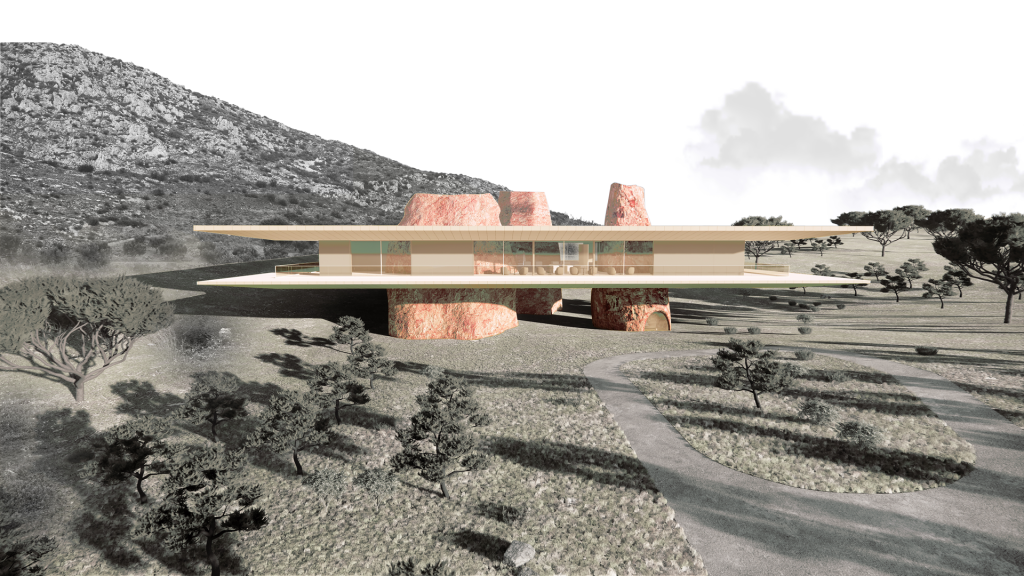
The aim of this thesis is to present the design of a Seed and Data Bank in Zakynthos, Greece, to ensure that food crops can regrow after an apocalypse. The thesis attempts to explore the nature-human coexistence, a relationship in constant change, and how technology can improve it. Specifically, the project shows how the design could adapt to the changing environment by following the life of the structure from 2022 to 2200.
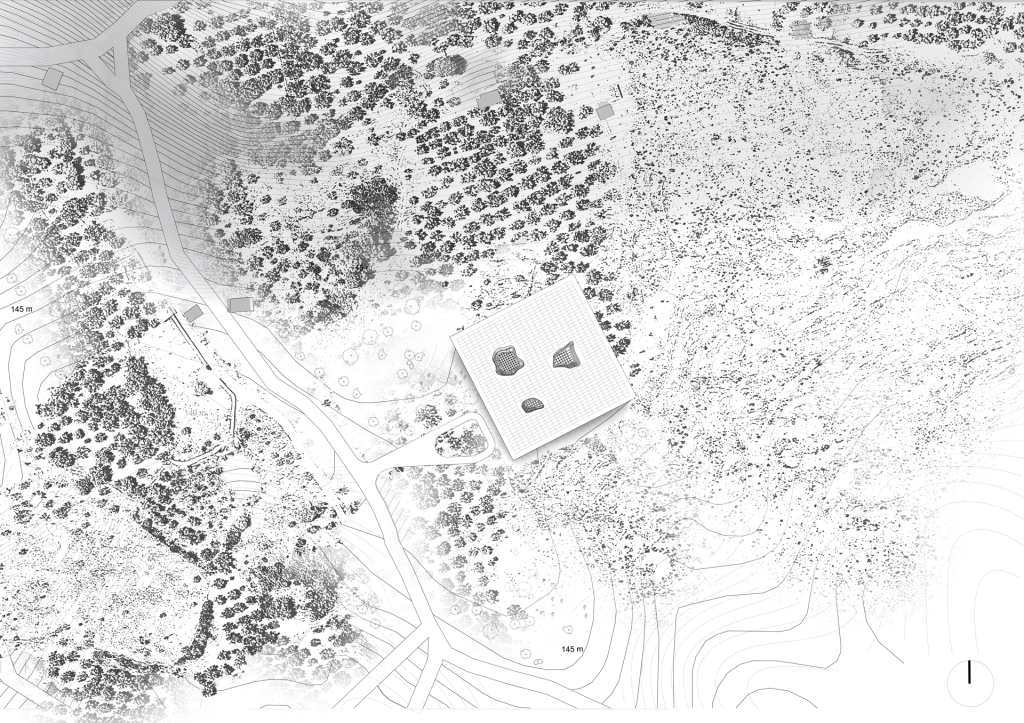
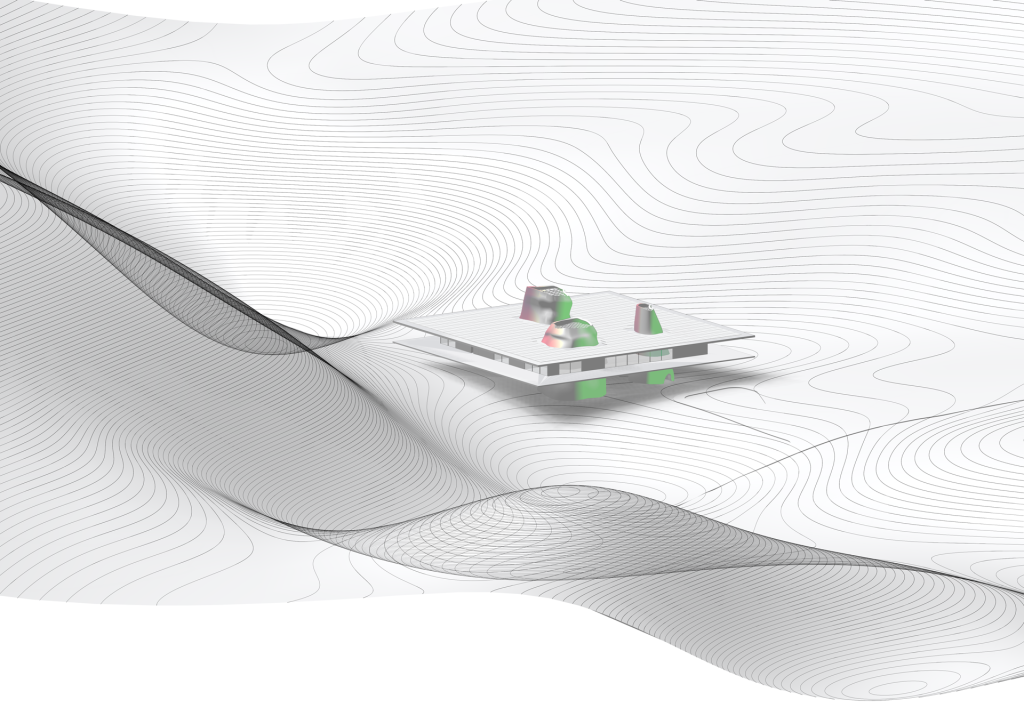
The design process began with the search for protective mechanisms in nature. That’s how the concept of the cocoon was born. The cocoon is a place of metamorphosis and at the same time a shelter from environmental conditions and enemies. Similarly, the building shell was designed as a mission to protect the seeds and their data for the next generations. The cocoon becomes the architectural form and the living organism that is held within it now takes the form of digital information or seed.
The design approach includes three main phases. First, the construction of a temporary modular institute for above-ground research. Then, the collection and preservation of seeds, and finally, the creation of a digital archive of these seeds.
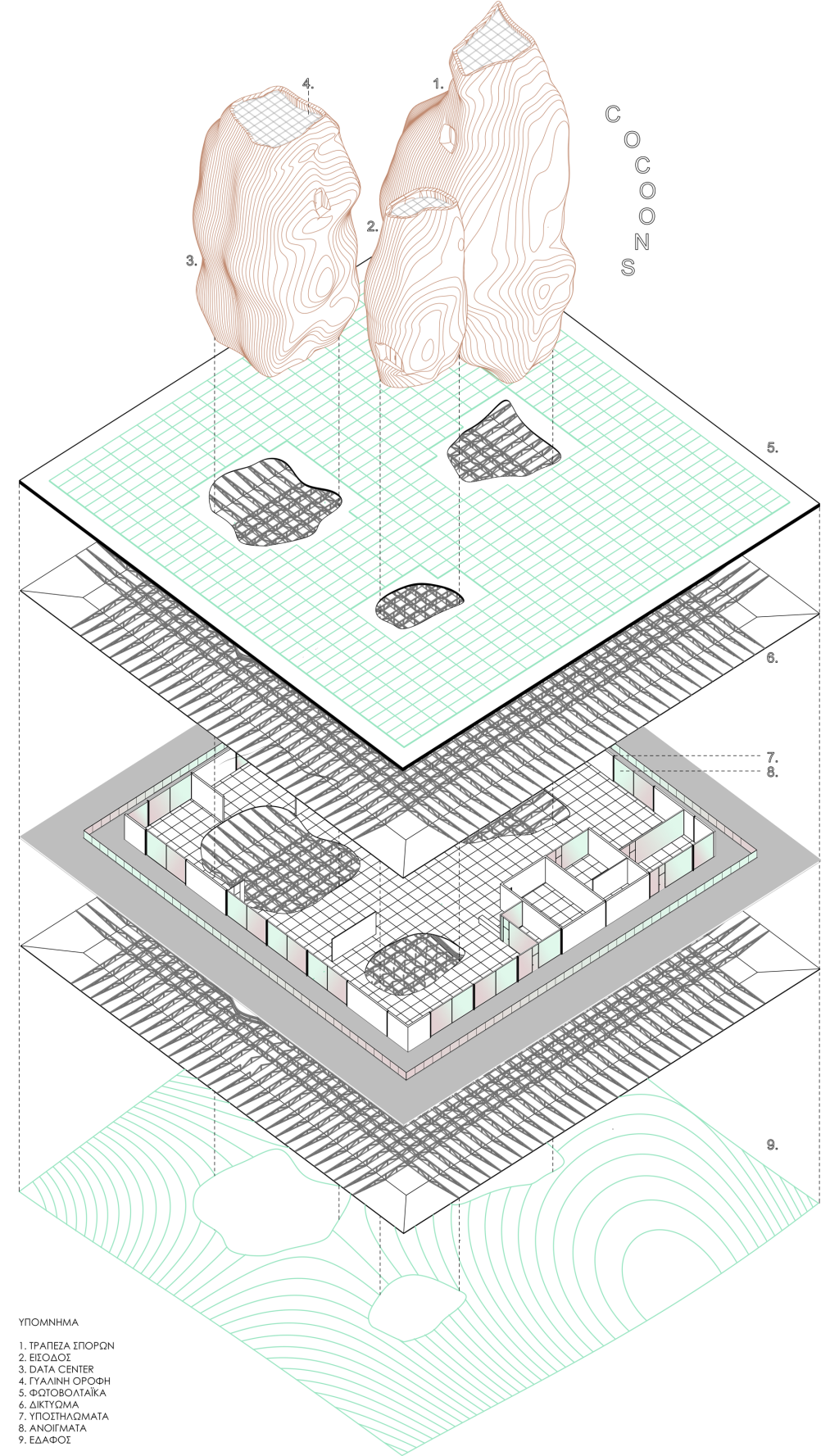
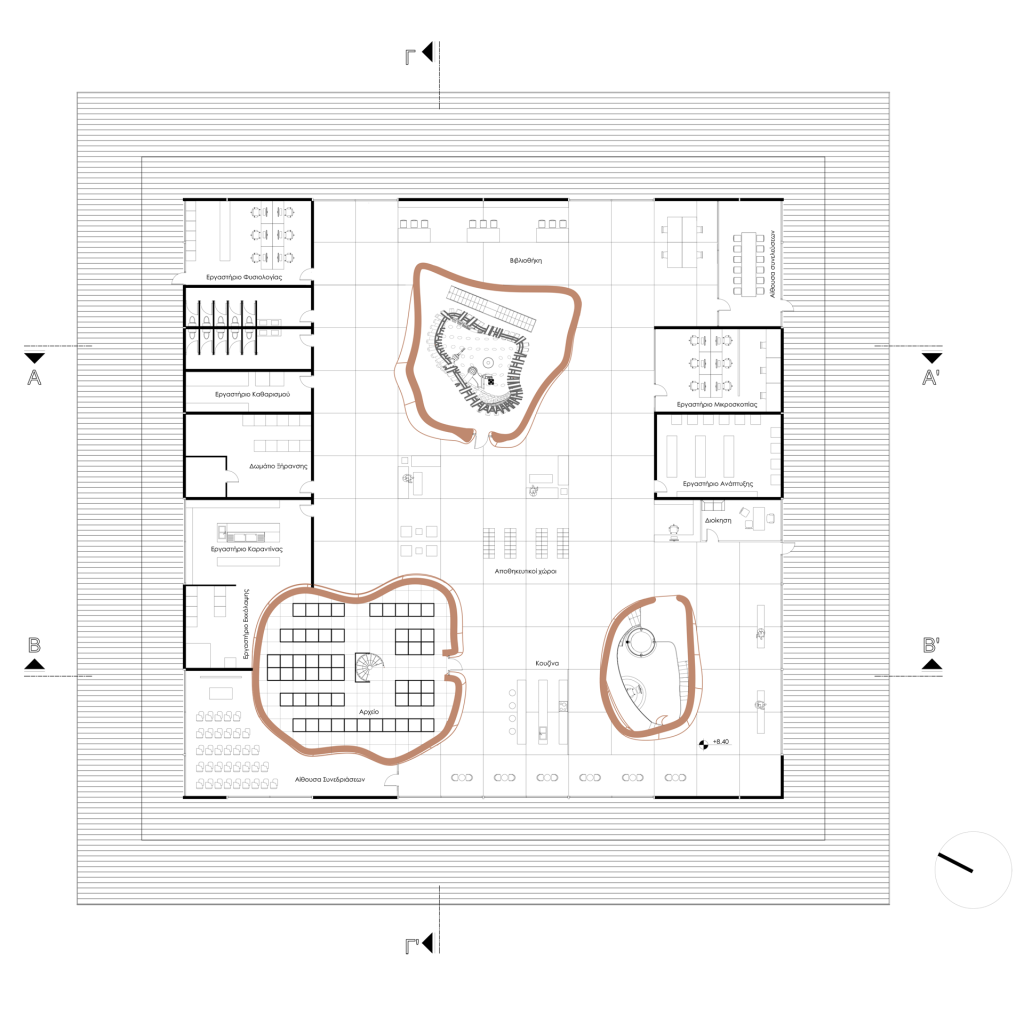
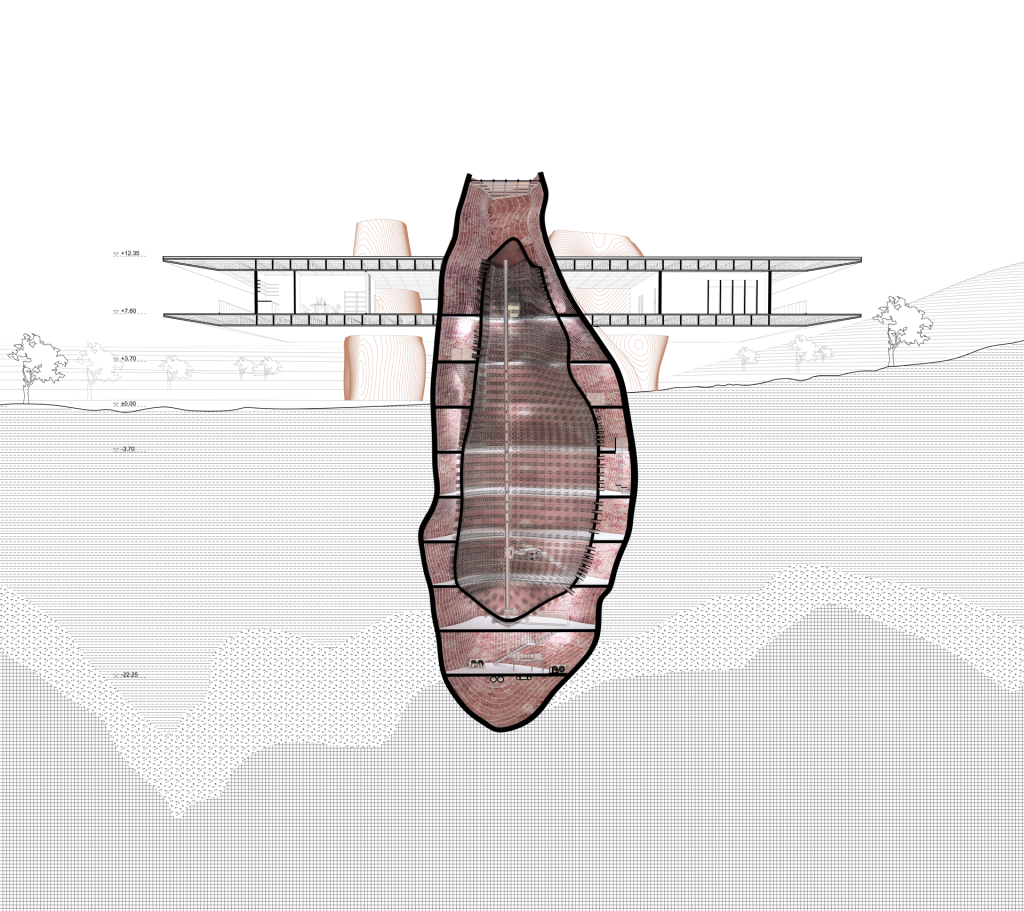
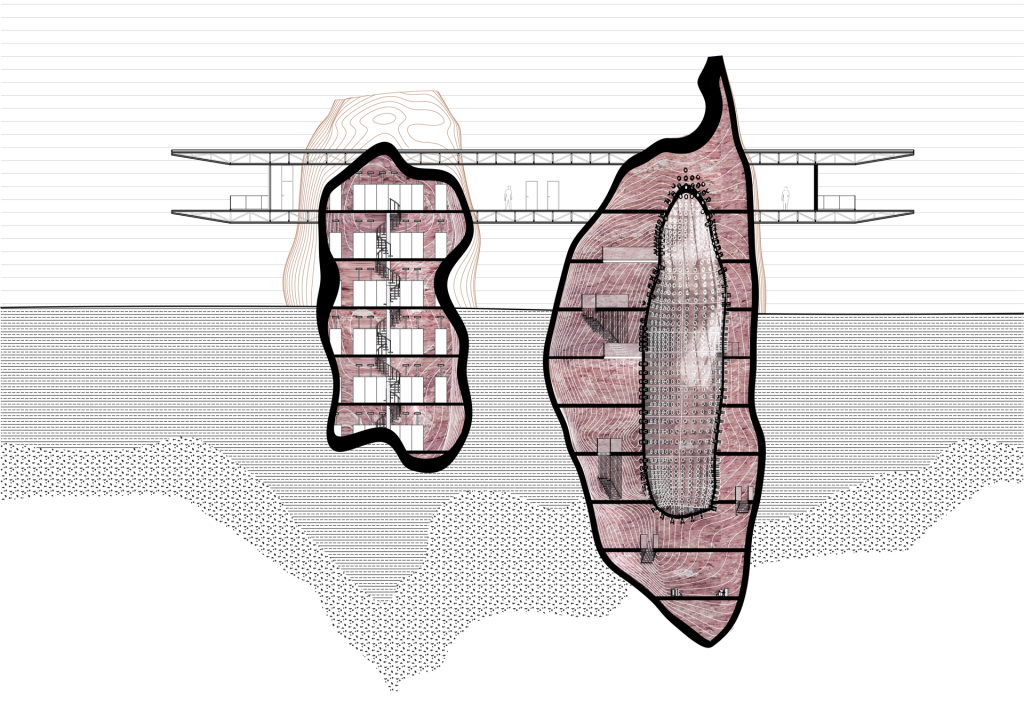
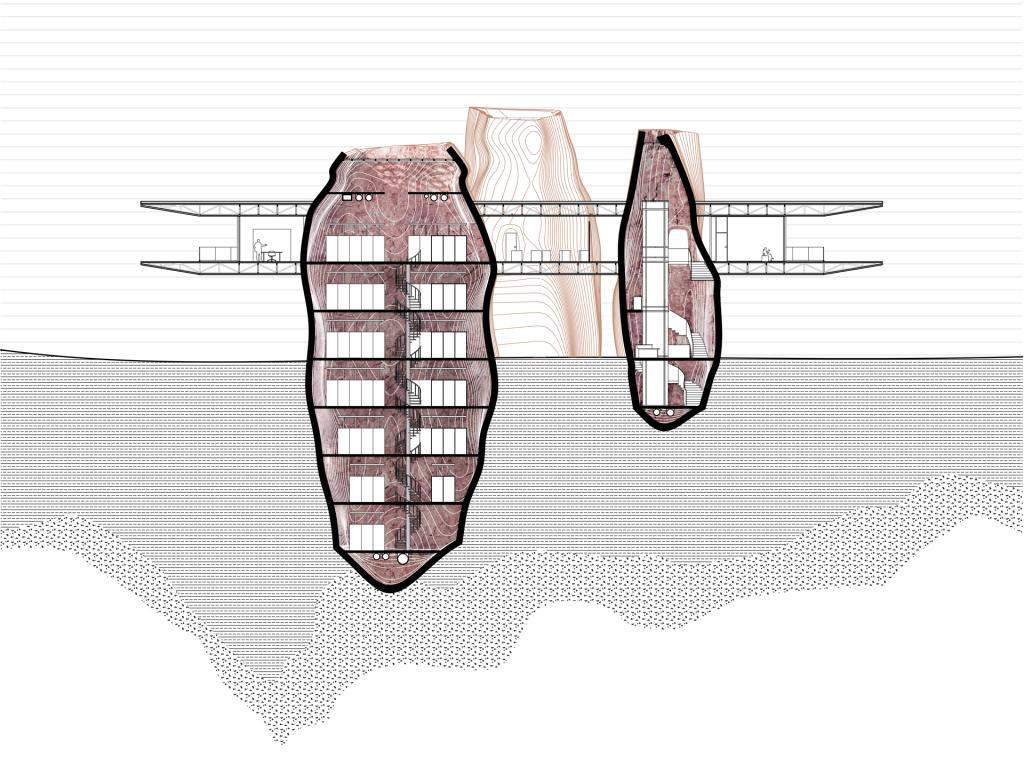

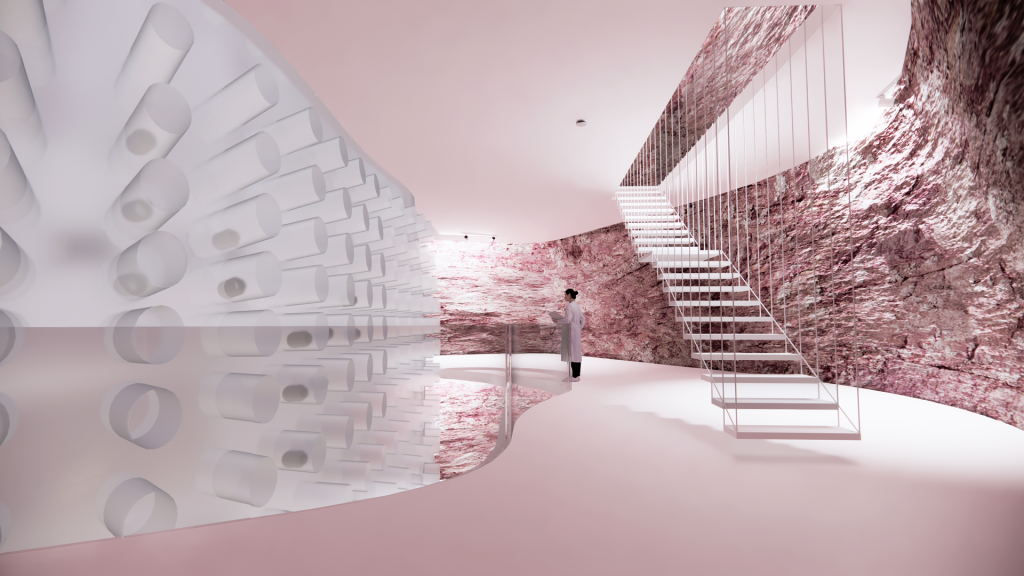
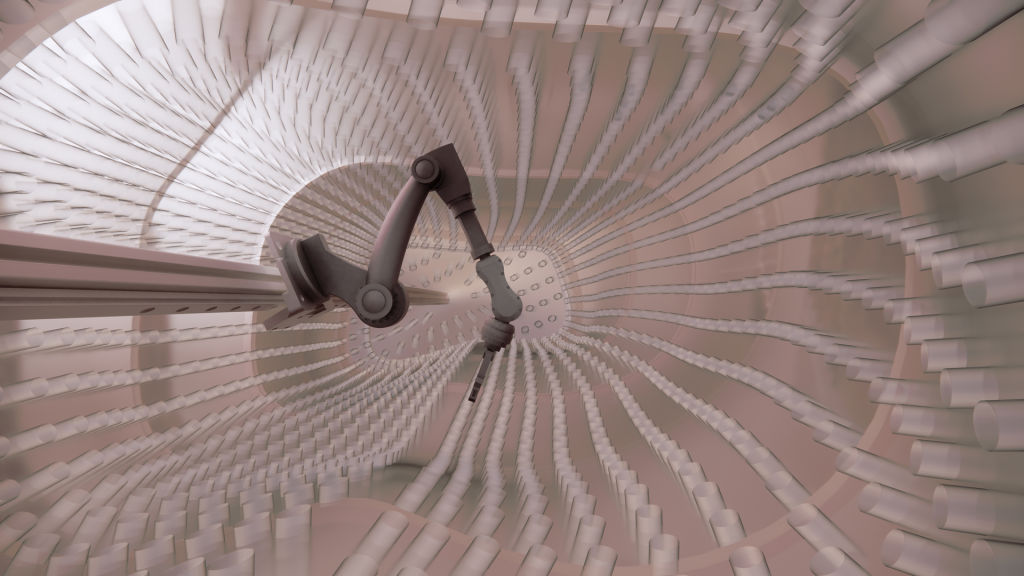
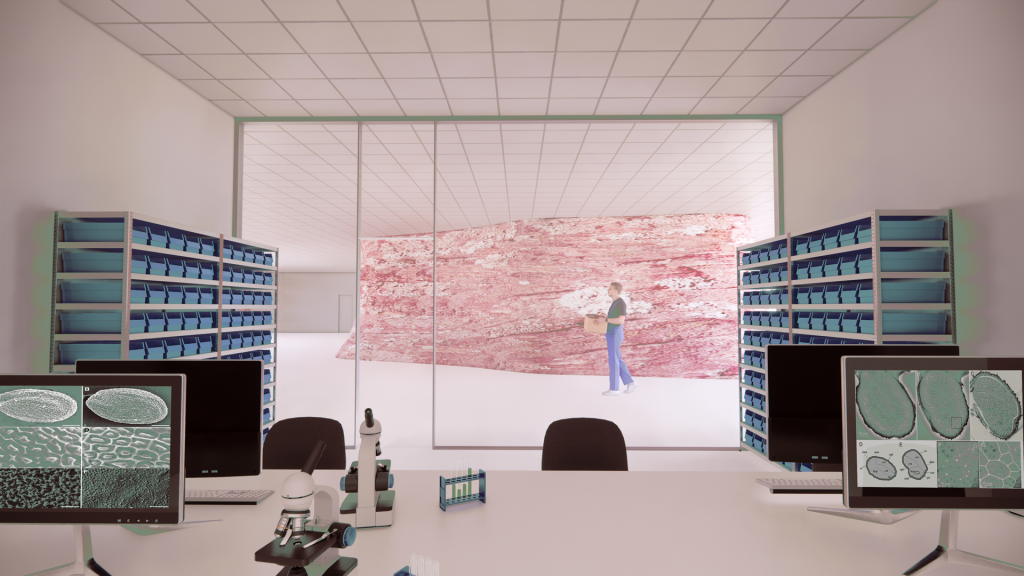
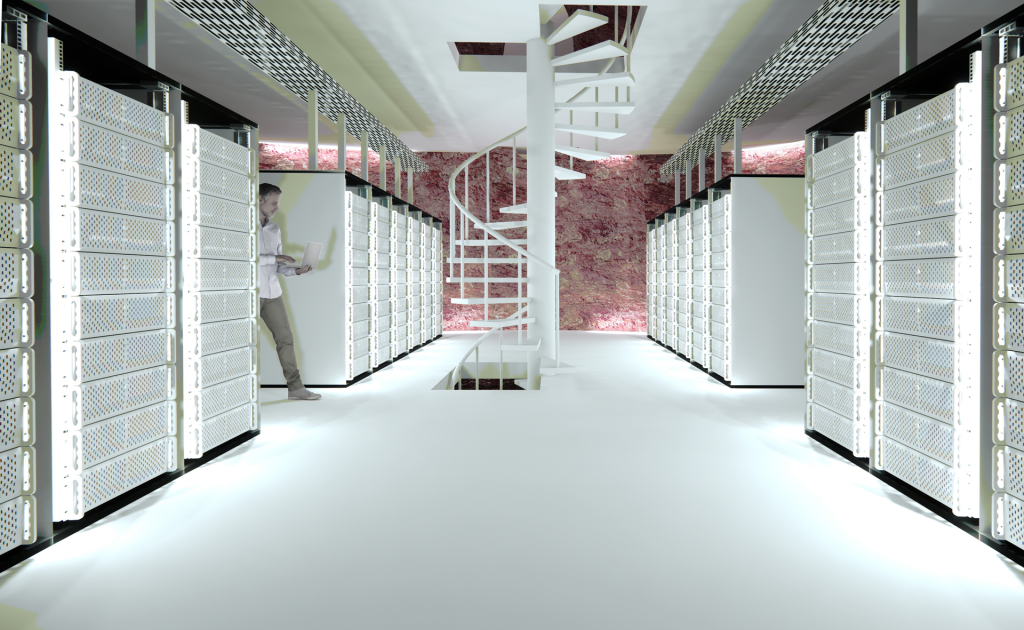
The site of choice is the island of Zakynthos, Greece. The project is stratigically located in a mountainous area for two reasons: it offers not only a lower temperature, but also the necessary altitude. These two parameters define the basic design decisions.
A few years later, the building is completely destroyed. In the ruins there are three volumes in the background that show that not every trace of life has vanished. The three cocoons still retain biodiversity inside. The seeds have completed their journey and the time has come for them to start life anew.
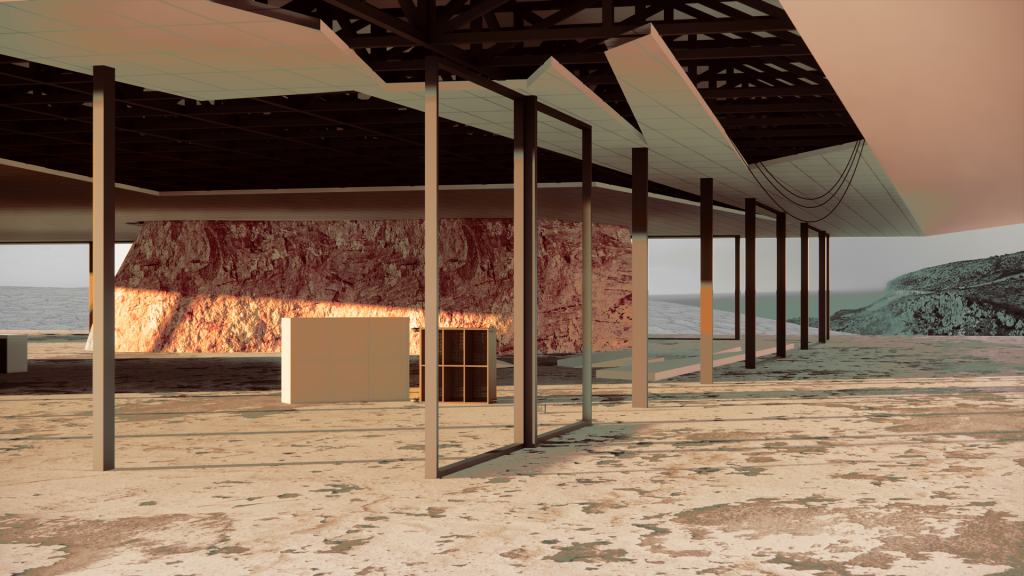
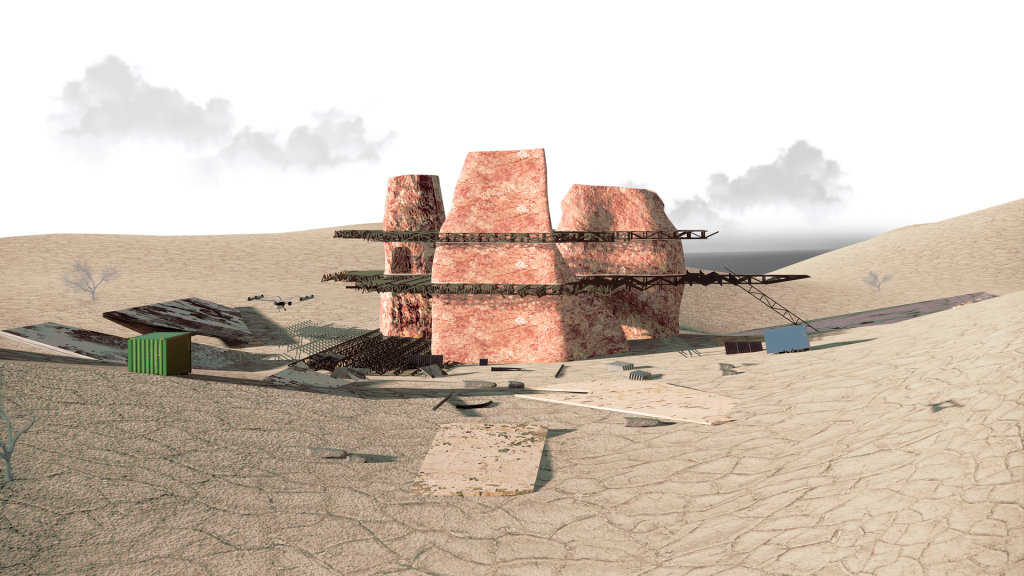
Today, more than ever, in the face of unprecedented challenges, it is crucial to explore alternative future scenarios. This thesis attempts to stimulate reflection on the concept of climate change risk. Thinking about the future can serve as a tool for understanding the present. Potentially it can become a tool to save many species from the threat of human activity.